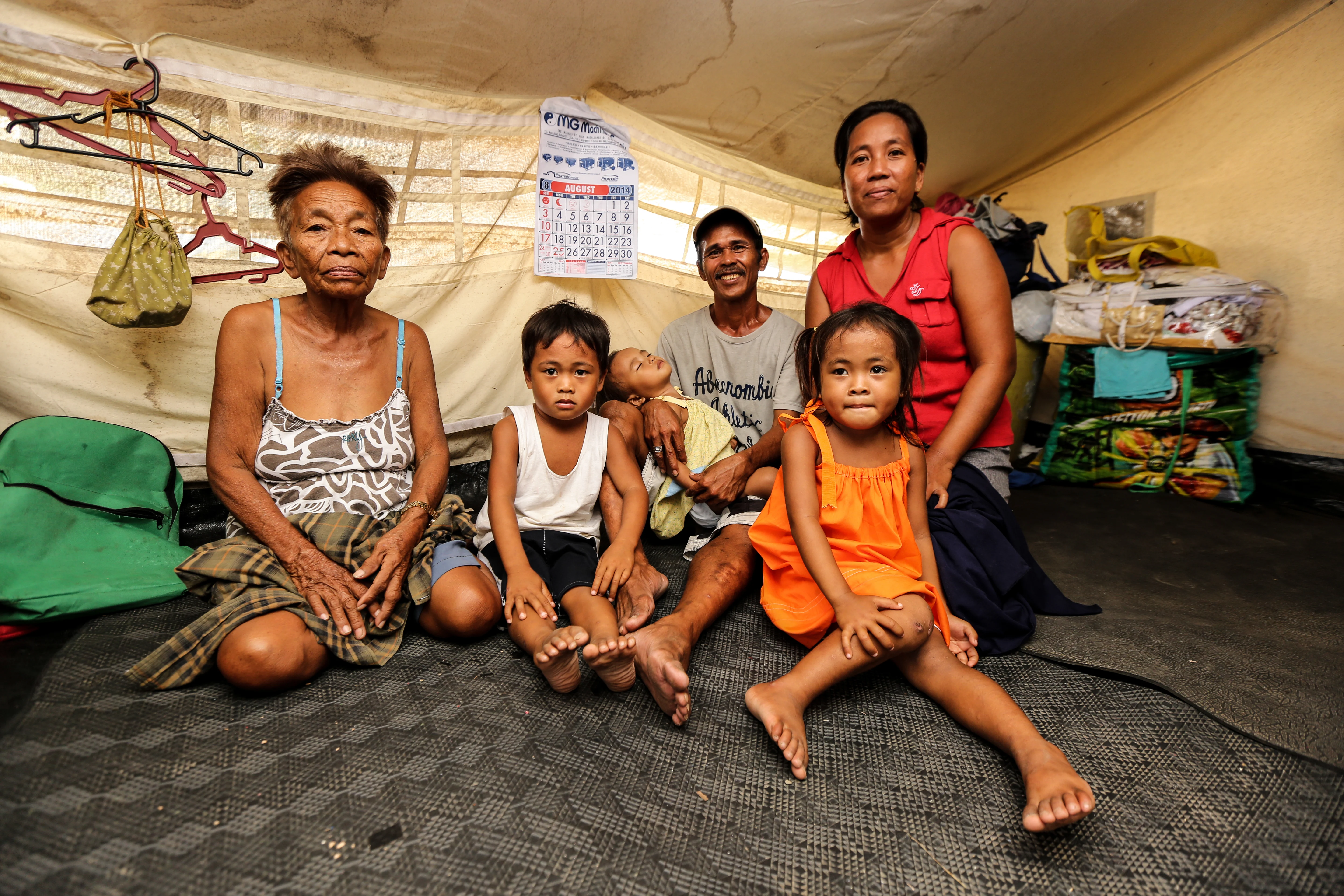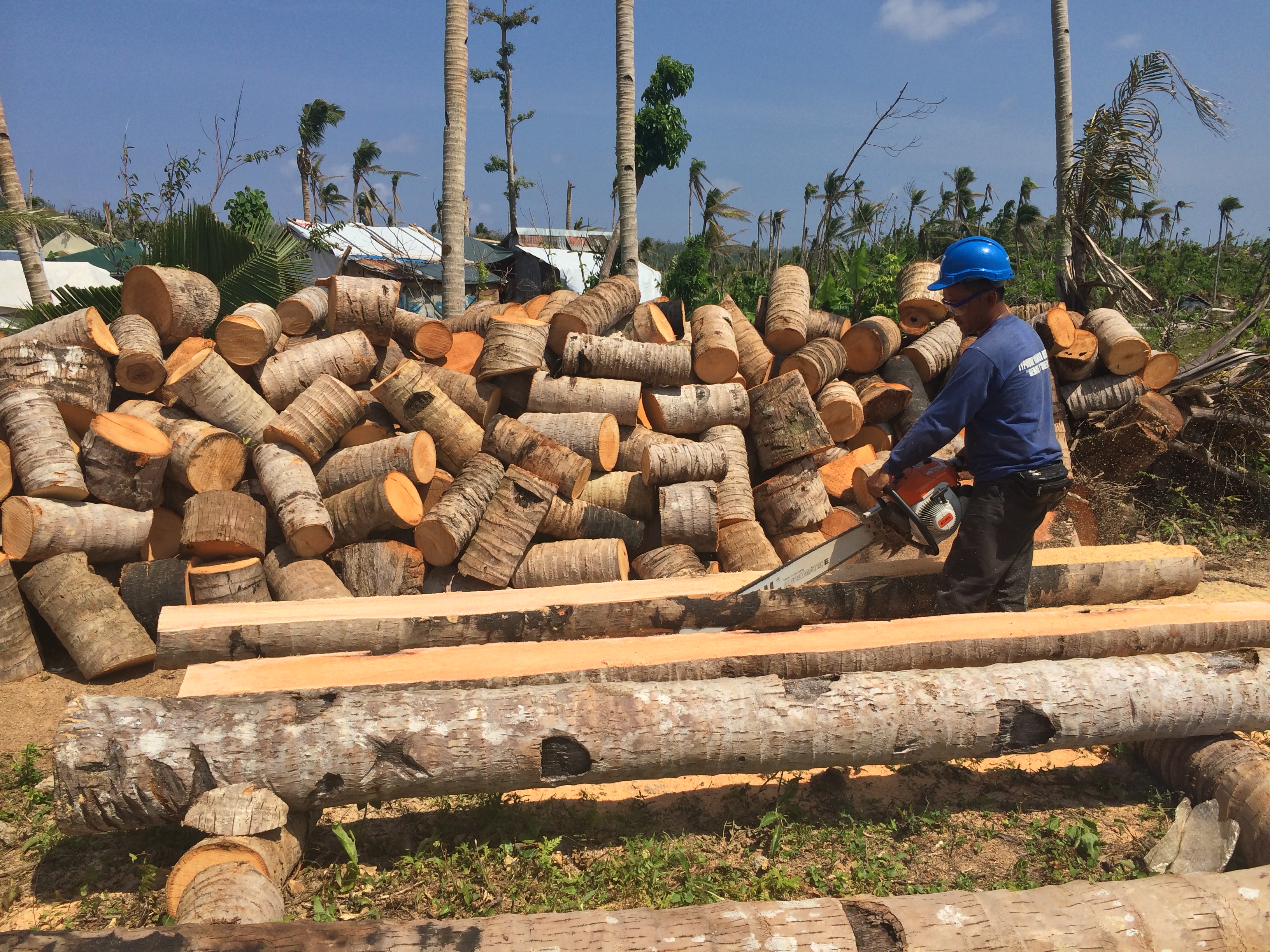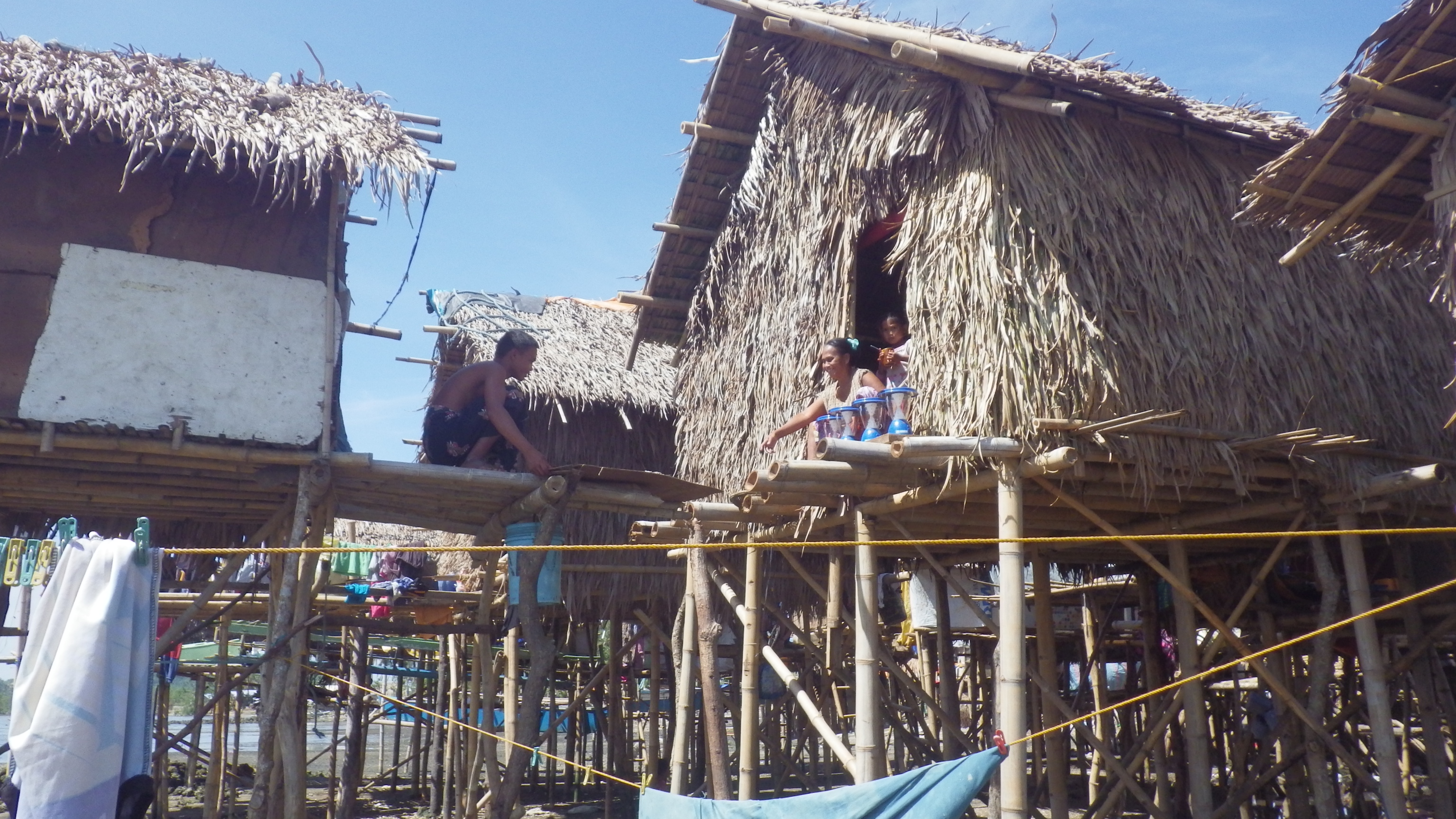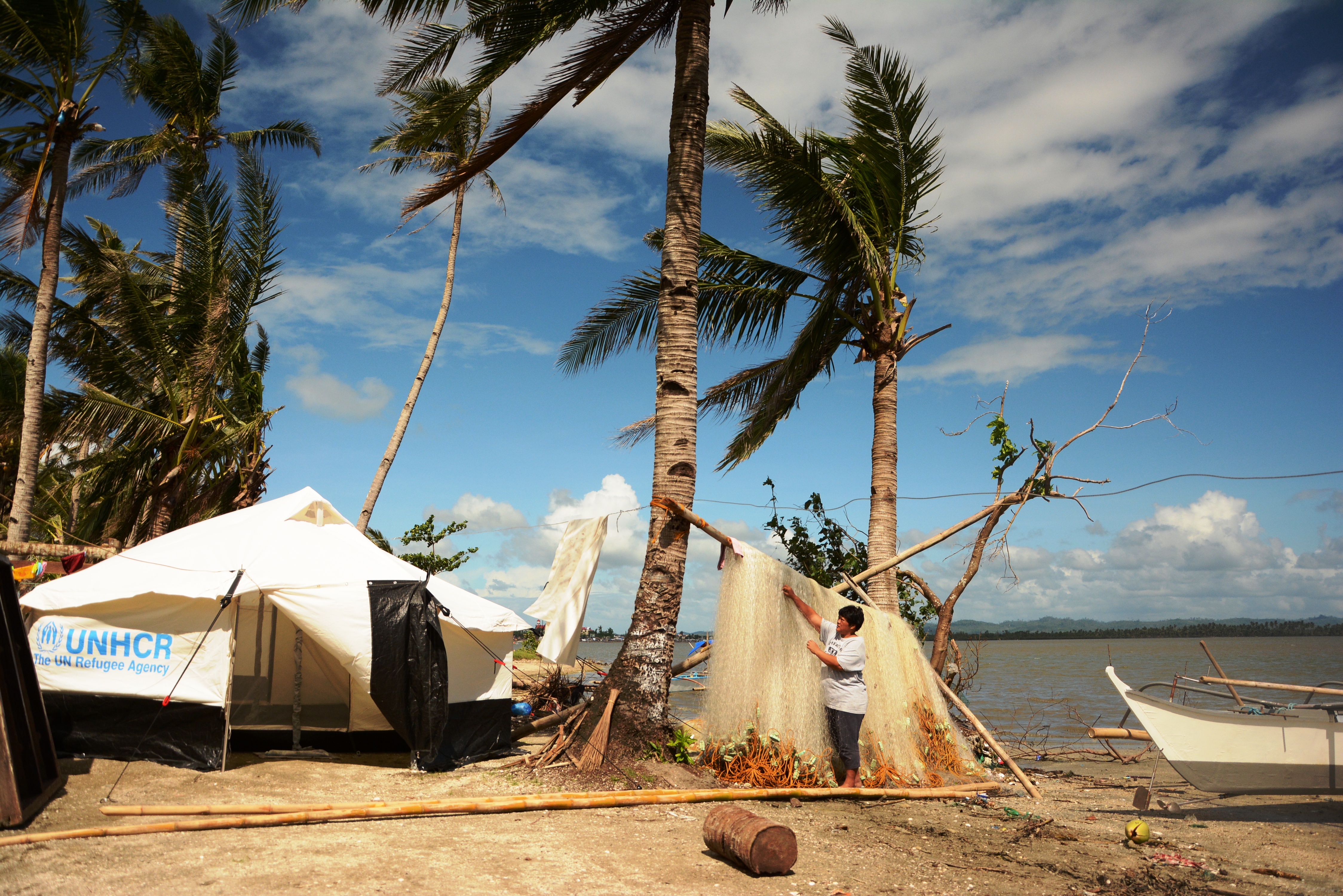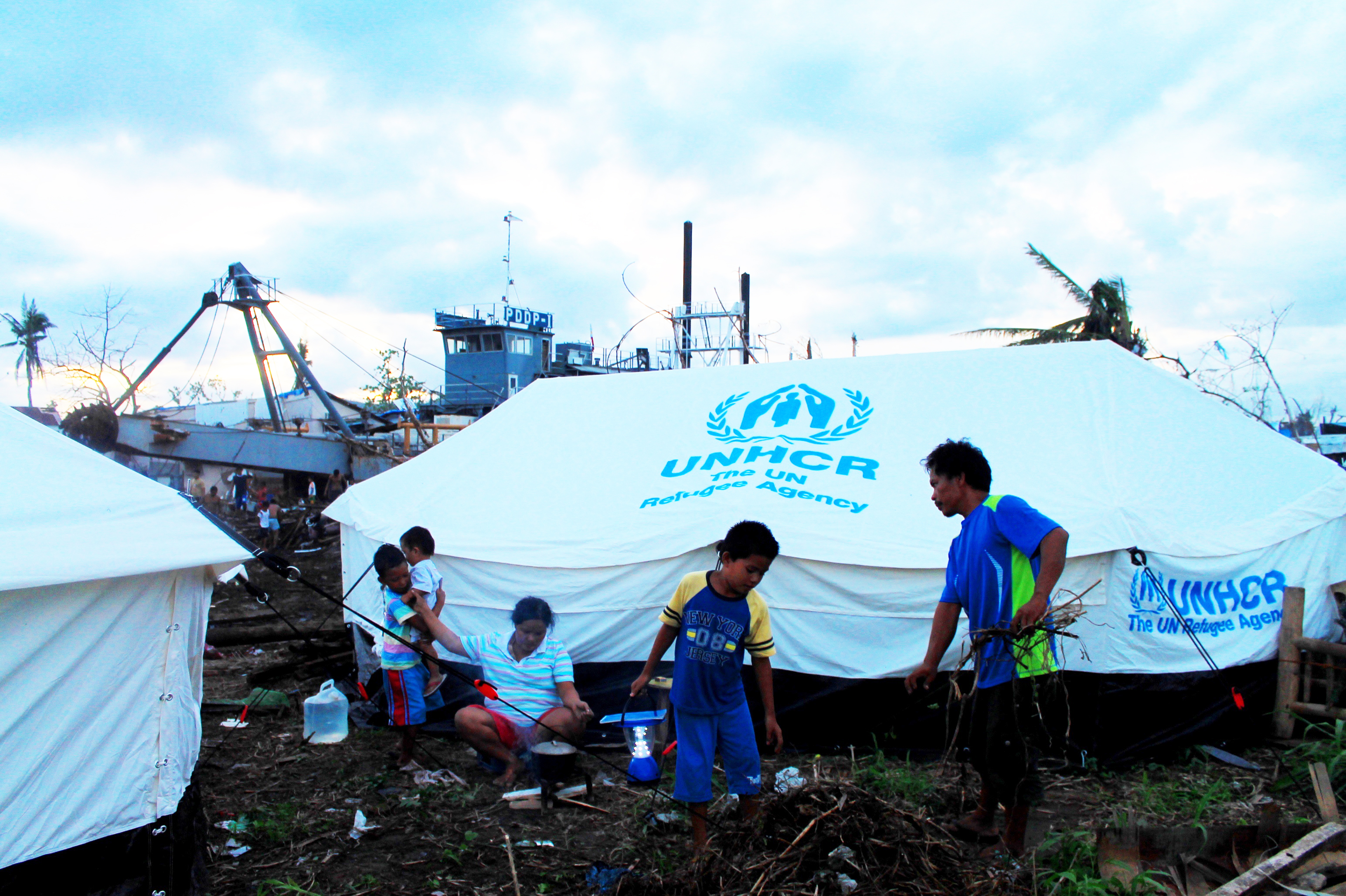Typhoon Haiyan: Rebuilding identities in the central Philippines
Typhoon Haiyan: Rebuilding identities in the central Philippines
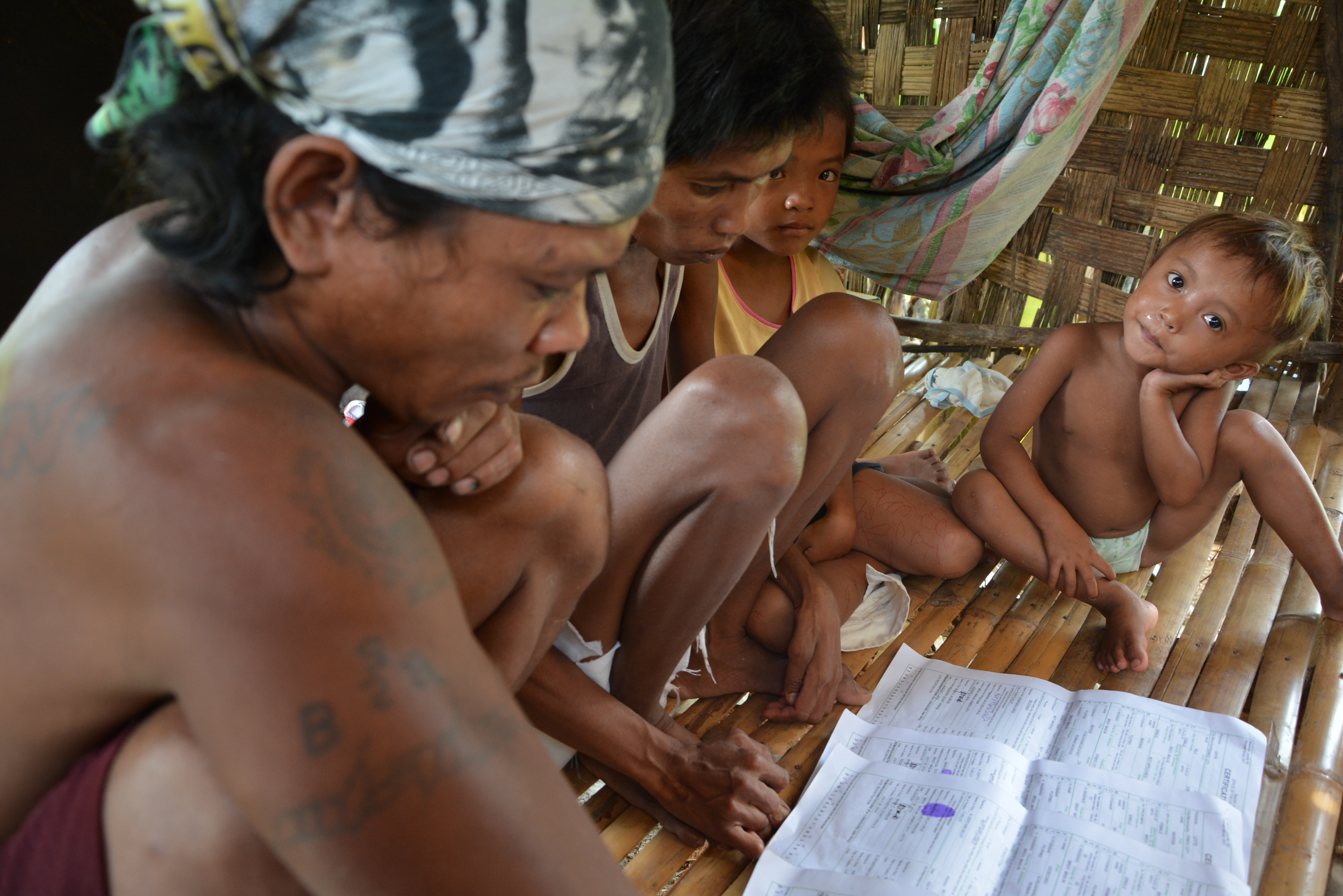
MAS-IN, the Philippines, September 8 (UNHCR) - Almost a year after Typhoon Haiyan cut a swath of destruction through the central Philippines, rebuilding has turned the region into one big construction site. Major infrastructure, buildings and roads are being rehabilitated. But in the interior village of Mas-in, nestled among sugarcane and pineapple plantations, one woman can only think of building what she has been longing for since birth - her identity.
Marissa Esmiro, 37, along with her husband Marvin, 33, and two daughters, recently acquired their birth certificates at the office of the local civil registrar - formally and legally establishing their identities.
This new lease on life gives the family a chance to improve their situation. "We were considered aliens even before the typhoon came and we owned nothing," said Marissa, who never finished her primary education and gets by with only a US$4 weekly income from clearing farm land.
Starting this April, the UN refugee agency, through its implementing partner IDEALS (Initiatives for Dialogue and Empowerment through Alternative Legal Services), has been implementing a free mobile civil registration project aimed at assisting an estimated 80,000 typhoon survivors in issuing or reconstituting their civil records and other legal documents including birth, marriage and death certificates. As of August, the project has generated more than 120,000 requests, surpassing its initial target.
These vital civil documents, like the birth certificate, open up a range of opportunities to citizens like Marissa to access housing, health care, education, employment, civil protection and confirmation of citizenship.
The Philippines' social services agency recently conducted a household survey for a five-year social protection programme in education and health services in Haiyan-affected areas. The Esmiros were among the lucky ones who have been enrolled in the conditional cash transfer programme of the Department of Social Welfare and Development. Without their documents, this would not have been possible.
"I never really learned to write except for my name. My husband doesn't know how to write at all. We may not have everything in this world, but at least a good education for our children will give them a name they can be proud of some day," said Marissa, hopeful that the government's programme will bring literacy to her children and a way out of the poverty cycle faced by one in four Filipinos.
As she stands in a government office with birth certificates in hand, Marissa cannot believe that her fate is slowly changing. "I can send my children to school every day," she said, reading through the list of services posted on the office wall, "I didn't know we can also avail ourselves of free health services!"
Rebuilding remains a constant activity here in the eastern Visayas region. As some people rebuild their homes and others reconstruct their identities, the once bleak land of death and debris continues to get brighter every day.
Marissa waits for a ride back home, having secured her children's future written on paper. "They say a mother completes a home, so I need to go back to start rebuilding our house."
Meanwhile, as UNHCR prepares to hand over its operation to government structures, its partner relief agency UNICEF plans to pick up UNHCR's civil documentation project and scale up the project coverage until March next year.
By Keneath Bolisay in Mas-in, the Philippines

